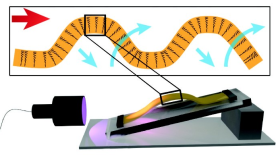-
There's a push in Congress to rewrite how science gets used in regulation — and that has researchers worried. The industry-backed bill would let business nitpick raw data and ignore valid results.
-
A recent study shows that the biggest way to reduce climate change is to have fewer children, but, says one of its authors, the report isn't meant to tell people how to plan their futures.
-
In a new study, neither control subjects nor those who used Lumosity games showed improvement beyond getting better at the specific games they were playing, says blogger Alva Noë.
-
Though America's coal industry continues to shrink, it's left its mark on the earth: Abandoned strip mines, flattened by explosions and the desperate…
-
Ohio State researchers report a three year study shows eating tomatoes may lessen the risk of developing skin cancer. The Ohio State University study,…
-
Bats are the only flying mammal.But that's just one of a long list of bats' unique attributes, including an unusually long life and the ability to avoid…
-
Researchers from Kent State University and Edinhoven University of Technology in the Netherlands have developed the world’s first material to convert…
-
Studies highlighted in Scientific American indicate a propensity for less-well-performing employees to take aim at the efforts of their star coworkers.
-
As crazy as it may sound to the non-scientist, cells in a patient's jaw may be able to rejuvenate their bad heart. Yi-Gang Wang, MD, PhD, a professor in...
-
Eggs evolved over 300 million years ago and now come in all kinds of shapes, from Tic Tacs to teardrops to pingpong balls. After studying some 50,000 eggs, a team of researchers thinks it knows why.
© 2025 WOSU Public Media
Play Live Radio
Next Up:
0:00
0:00
Available On Air Stations










